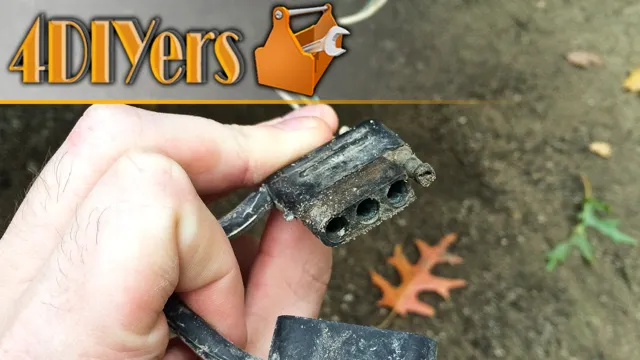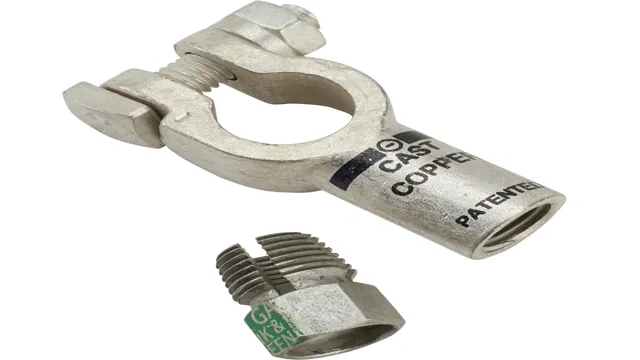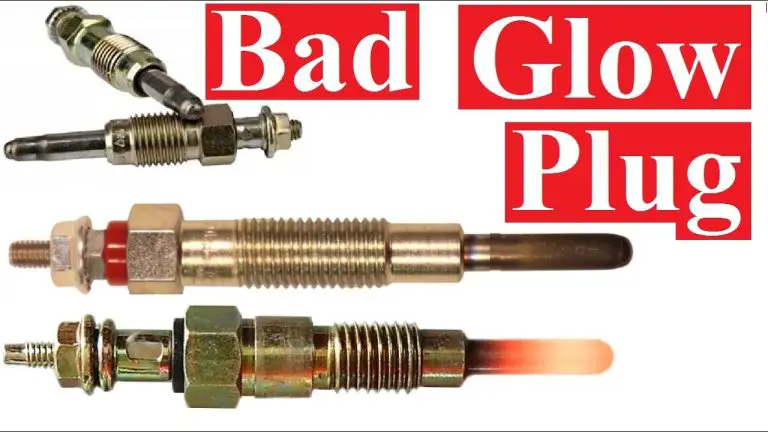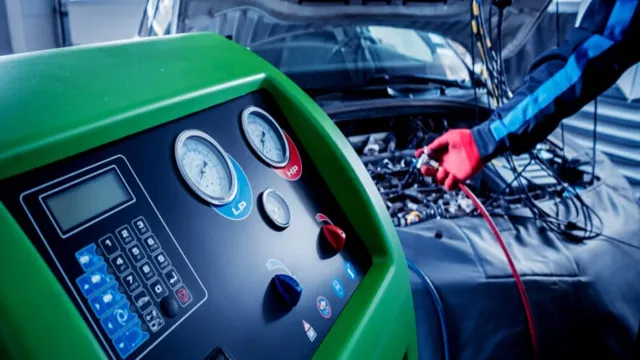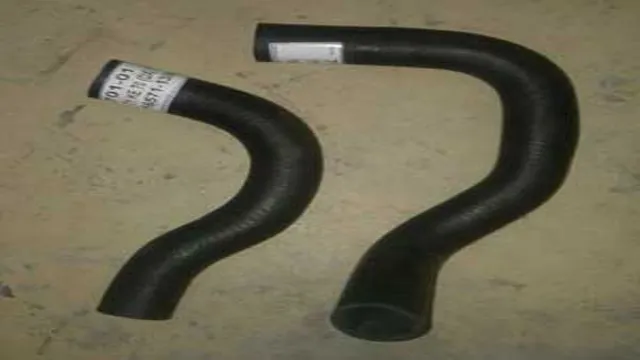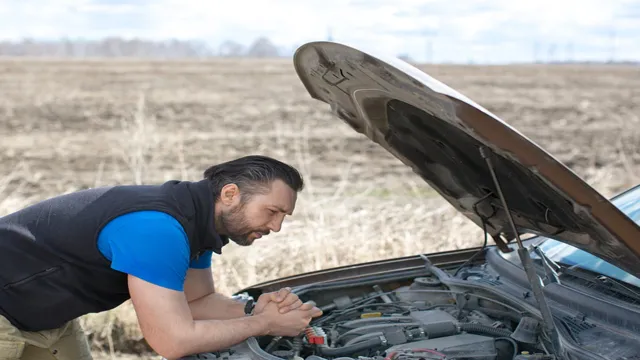Sparkling Connections: The Ultimate Guide to Cleaning Your Trailer Plug Like a Pro!
Are you having trouble with your trailer lights? Are they flickering or not turning on at all? The problem might be a dirty or corroded trailer plug. Keeping the trailer plug clean is important to maintain proper electrical connection and ensure safe towing. In this blog post, we will discuss the steps on how to clean a trailer plug and make sure your trailer lights are working properly.
So put on your gloves and let’s get to work!
Why Cleaning Trailer Plug is Important
If you’re a trailer owner, you’ll know how critical it is to ensure that all parts of the trailer are maintained and in good condition, including the trailer plug. Trailer plugs are used to power the brakes, lights, and turn signals while towing, which makes them essential components for safe driving. Over time, however, the plugs can become corroded, dirty or damaged due to exposure to the elements, dirt, and moisture.
This can cause electrical shorts and failures, resulting in poor brake performance, dimming lights or even complete failure of the trailer’s lighting system. Cleaning the trailer plug regularly using a toothbrush or specialized cleaner can reduce the risk of failure and ensure optimal performance. By doing so, you can avoid potential safety hazards, keep your trailer’s electrical system in tip-top condition, and enjoy a safe and trouble-free journey.
So, whenever you notice any wear and tear or dirt buildup, make sure to give your trailer plug a thorough cleaning with the help of a few simple tools and techniques.
Avoid Costly Repairs
If you own a trailer, you know just how important it is to keep it maintained properly. One simple task that can save you a lot of time and money in the long run is cleaning your trailer plug regularly. A trailer plug can easily become dirty, corroded, or damaged, which can lead to poor connections and even costly repairs.
By taking a few minutes to clean your trailer plug, you can ensure that it stays in good working condition and avoid any potential problems down the road. So, next time you’re inspecting your trailer, don’t forget to give the plug a good cleaning. With just a little bit of maintenance, you can keep your trailer running smoothly, and save yourself from any unnecessary headaches and expenses.
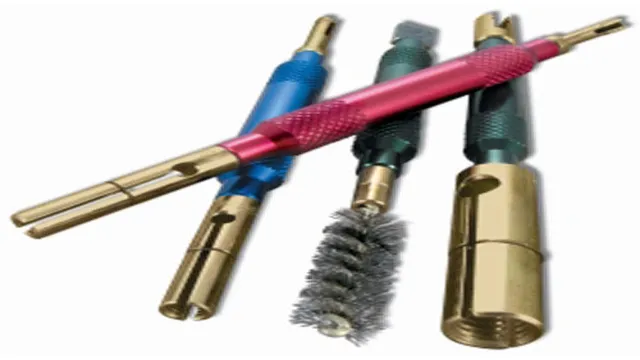
Prevent Electrical Malfunction
It’s easy to overlook the importance of cleaning the trailer plug, but it can play a crucial role in preventing electrical malfunctions. Over time, dirt and debris can accumulate on the surface of the plug and cause a poor connection, leading to issues like flickering lights, surges, or even complete outage. By taking a few moments to clean the plug regularly, you can ensure a solid connection and avoid potential hazards that might arise due to faulty electrical systems.
Think of it like wiping down your car’s windshield before driving in heavy rain – it’s a simple step that can save you a lot of trouble down the road. Keeping your trailer plug clean is an easy way to stay safe and avoid electrical issues that might put you and your passengers at risk.
Increase Safety While Towing
When towing goods or machines, safety is a top priority. A common mistake that people make when towing is overlooking the importance of cleaning the trailer plug. The trailer plug is a crucial aspect of the towing system as it connects the truck’s electrical system to the trailer’s electrical system.
When the plug is dirty or corroded, it can cause electrical issues, leading to malfunctioning lights, brakes, and turn signals. These malfunctions can pose a significant risk to the driver and other road users. Therefore, it’s essential to regularly clean the trailer plug to prevent any electrical problems.
Using a wire brush or sandpaper, carefully remove any dirt or corrosion from the plug’s metal prongs. Then, apply a small amount of dielectric grease to protect the plug from moisture and dirt. By taking these simple precautions, you can ensure your towing system is safe and that you can get to your destination without any problems.
Materials Needed to Clean a Trailer Plug
Cleaning a trailer plug is an essential step to ensure that your trailer lights function as they should. To clean a trailer plug, there are some materials you’ll need. First, you’ll need a clean rag or towel to wipe away any dirt or grime on the plug’s surface.
It’s important to remove any debris carefully to avoid damaging the plug. Next, you’ll require an electrical contact cleaner. This cleaner helps in removing any dirt or corrosion that may have accumulated inside the plug’s terminals.
You can also use a small brush to clear the terminals gently. Finally, you’ll need a dielectric grease to lubricate the plug and keep it from rusting again. Applying this grease is an important step as it helps in protecting the plug from moisture and other elements that may cause corrosion.
With these materials, you’ll have everything you need to clean your trailer plug and keep it working efficiently.
Rubbing Alcohol or Contact Cleaner
When it comes to cleaning a trailer plug, there are a few materials you’ll need to get the job done properly. One of the key items is rubbing alcohol or contact cleaner. These solutions are great for removing any dirt, grime or debris that may be present on the plug’s surface.
Rubbing alcohol is a form of isopropyl alcohol that can dissolve any oils or organic materials on the plug, making it easier to clean. Contact cleaner, on the other hand, is specifically designed for use on electronic components and can help to clean and protect the plug’s delicate wiring. By using rubbing alcohol or contact cleaner, you’ll be able to achieve a deep and thorough clean without damaging the plug in any way.
So, next time you need to clean your trailer plug, be sure to add these materials to your list of supplies.
Wire Brush
When it comes to maintaining your trailer plug, it’s essential to have the right tools on hand. One of the most critical materials you’ll need is a wire brush. This tool is ideal for removing rust, corrosion, and other buildup that can impede electrical connections.
Wire brushes come in various sizes, so be sure to choose one that is appropriate for the size of your trailer plug. When using a wire brush, be gentle, and take care not to damage the connectors. When you’ve finished cleaning the plug, you may also want to apply a protectant or lubricant to help prevent future corrosion.
Overall, keeping your trailer plug clean and well-maintained is an important part of ensuring that your trailer operates safely and reliably on the road.
Microfiber Cloth
When it comes to cleaning a trailer plug, having the right tools is essential. One of the most useful materials you can use is a microfiber cloth. Microfiber cloths are made up of tiny fibers that have been split into even smaller fibers to create a soft, absorbent fabric.
These cloths work wonders in lifting dirt, dust, and grime without the need for harsh chemicals. They’re also reusable, making them an eco-friendly solution for cleaning your trailer plug. When using microfiber cloths, be sure to follow manufacturer instructions for washing, as harsh detergents or fabric softeners can damage the delicate fibers.
By adding a microfiber cloth to your cleaning arsenal, you’ll be able to keep your trailer plug looking clean and polished with ease.
Steps to Clean a Trailer Plug
If your trailer plug is not making a good connection or you are seeing signs of rust and corrosion, it is time to clean it. Cleaning a trailer plug is a simple process that requires only a few tools and about 15-20 minutes of your time. First, you need to determine whether your plug is a round or flat style.
Next, disconnect your vehicle from the trailer and inspect the plug for any signs of dirt, rust or debris. Using a wire brush or sandpaper, gently clean the prongs of the plug and the inside of the female socket. Next, use a contact cleaner or rubbing alcohol to remove any remaining dirt or corrosion.
Wipe the plug and socket dry with a clean cloth and then apply a small amount of dielectric grease to the prongs before reconnecting your trailer. This will help to prevent future corrosion and ensure a good connection. That’s it! With these easy steps, your trailer plug will be ready for the road in no time.
Step 1: Turn Off Power Source
If you want to keep your trailer plug functioning properly, regular cleaning is essential. To start the cleaning process, the first thing you need to do is turn off the power source. This is important as it ensures your safety and prevents any electrical damage.
Simply unplug the trailer from your vehicle or disconnect the battery if the trailer is not connected to the vehicle. Once the power is turned off, inspect the electrical pins and connectors for any signs of corrosion, dirt or any other foreign materials. If there’s any build-up, clean it using electrical contact spray or a mild soap and water solution.
Gently scrub the connectors and pins with a soft brush to remove any residue. Finally, dry the connectors before plugging the trailer back in. Remember, regular cleaning prevents costly repairs and ensures a safe journey!
Step 2: Remove the Plug from the Socket
When it comes to cleaning a trailer plug, there are a few essential steps to follow. Step 2 is perhaps the most important, which involves removing the plug from the socket. It’s essential to cut the power supply before you touch the plug, ensuring your safety while you work.
Next, take a look at the socket to check if there’s any dirt, debris, or corrosion. If there is, you can use a wire brush or sandpaper to clean it off, ensuring a smooth connection when you plug it back in. When removing the plug, be sure to grab it firmly without pulling on the wiring or yanking too hard.
Gently wiggle the plug back and forth until it pops out of the socket. Once you’ve removed the plug, take a moment to inspect it for any visible signs of damage or wear. Check the wiring for fraying, nicks, or cuts, which could compromise the connection.
If you notice any issues, it may be best to replace the plug altogether, rather than trying to repair it yourself. By taking these simple steps, you can keep your trailer plug in top condition for years to come.
Step 3: Clean the Terminals with Wire Brush
To properly clean a trailer plug, it is important to clean the terminals with a wire brush. Over time, dirt and grime can build up on the terminals, creating a barrier that prevents the proper transmission of electrical signals. To begin, make sure the plug is disconnected and cool to the touch.
Then, take a wire brush and gently scrub the terminals, being careful not to use too much force or scratch the metal surfaces. Use an up-and-down motion and change the angle of the brush to hit all sides of the terminal. Once you have thoroughly cleaned each terminal, wipe away the excess dirt and debris with a clean cloth.
By cleaning the terminals with a wire brush, you can ensure that your trailer plug is working properly and prevent electrical issues down the road.
Step 4: Dip Microfiber Cloth in Rubbing Alcohol or Contact Cleaner
Trailer Plug Cleaning After inspecting the trailer plug for any signs of damage, it’s time to begin cleaning it. The fourth step involves dipping a microfiber cloth into either rubbing alcohol or contact cleaner. This will help to thoroughly clean the plug and remove any dirt or debris that may have accumulated.
The microfiber cloth is key as it is gentle on the surface of the trailer plug yet still provides adequate scrubbing power. Using rubbing alcohol or contact cleaner is important because it assists in removing any grease, grime, or corrosion that may have built up over time. Once the cloth has been dipped in either solution, gently rub the entire surface of the trailer plug, ensuring that all nooks and crannies are thoroughly cleaned.
Remember to take your time with this step, as a clean trailer plug is essential for ensuring a safe and reliable connection between the trailer and towing vehicle.
Step 5: Clean the Terminals with Cloth
Trailer Plug When cleaning the terminals of your trailer plug, it’s important to use a cloth to remove any dirt or debris that may have accumulated over time. Gently wipe the terminals until they are clean and free of any obstructions. It’s also important to check for any signs of damage, such as corrosion or rust, as these can affect the overall performance of your trailer plug.
If you do notice any damage, it’s recommended that you replace the plug altogether, as it can pose a safety hazard when towing your trailer. By keeping your trailer plug clean and well-maintained, you can ensure that your trailer safely transports your belongings or equipment wherever you need to go.
Step 6: Insert the Plug into the Socket and Check for Proper Connection
Cleaning a trailer plug is an essential task that every trailer owner should undertake to prevent electrical issues. After cleaning the plug surface with a wire brush or a sandpaper, the next step is to insert the plug into the socket and check for proper connection. If the plug doesn’t fit correctly and is loose, it may cause several problems like short circuits, voltage drop and can even damage the entire system.
Therefore, it is crucial to check the plug’s pins and sockets for any dirt or rust that may cause the connection failure. If you find any corrosion, use a contact cleaner to clean the pins, sockets, and the plug’s surface. Remember to be gentle with the pins, and not to bend or damage them while cleaning.
Once you clean and inspect the plug, insert it into the socket and ensure that it fits in firmly, with no loose connections. If everything seems alright, you’re good to go. However, if you still face issues, it’s best to get professional help for your trailer’s electrical system.
Keeping your trailer plug clean and well-maintained will ensure that you avoid any electrical issues and have a pleasant trailer adventure.
Preventative Measures
If you frequently use your trailer, it is essential to know how to clean your trailer plug to prevent potential wiring problems. Dirt, dust, and debris can accumulate over time, causing poor contact between the plug and socket, leading to connection issues, and even electrical sparks. A simple preventative measure is to clean the plug regularly.
First, disconnect the plug from the socket and inspect it for any signs of wear and tear. Next, use a soft-bristled brush to remove any visible dirt or debris from the plug and socket. You can also use a mild cleaning solution to eliminate any stubborn stains.
After cleaning, ensure the plug is thoroughly dried before reconnecting to the socket. This simple process protects your trailer plug from corrosion, extending its lifespan and preventing electrical problems on the road.
Store the Trailer Plug On The Tongue
If you’re a seasoned trailer owner, you’ll know that keeping the trailer plug secure is essential for a hassle-free towing experience. However, some owners neglect this important factor and end up regretting it later. Fortunately, there is a simple solution: store the trailer plug on the tongue.
By doing so, you can prevent the plug from bouncing around while on the move and potentially causing damage to your vehicle or trailer. Additionally, this preventative measure will make it easier to plug and unplug your trailer from the tow vehicle, saving you time and effort. Overall, taking the extra step to secure the trailer plug on the tongue is a small but vital action that can make a significant difference in the safe and efficient operation of your trailer.
So, next time you’re hitching up, don’t forget to secure that plug!
Use Dielectric Grease
Dielectric grease is an essential lubricant designed to prevent corrosion, water intrusion, and arcing between electrical connections. It’s a water-resistant silicone-based lubricant that acts as an insulator and protects exposed metal surfaces from oxidation, therefore reducing the likelihood of electrical failure. It’s incredibly versatile and can be used in various applications, including electrical connections on cars, boats, and motorcycles, and it’s an essential tool for a mechanic.
By coating electrical connections with dielectric grease, you’re creating a barrier that prevents moisture from penetrating into the connection, therefore preventing corrosion from forming. Dielectric grease is also great for sealing connectors and protecting them from the elements. It’s easy to apply, and a little goes a long way.
By applying dielectric grease to your electrical connections, you’re taking a preventative measure that will save you money in the long run. It’s an excellent investment that ensures your electrical connections stay corrosion-free.
Perform Regular Check-ups
Regular check-ups are an essential part of maintaining good health and preventing illness. This principle applies to all aspects of life, including our physical and mental health, as well as other components like our finances and relationships. Just like how routine doctor visits can help identify and treat health issues before they become major problems, regular financial check-ups can help us catch small issues and make necessary adjustments before they spiral out of control.
In the same way, regularly checking in with loved ones can ensure that any small disagreements are addressed before they turn into major conflicts. By performing regular check-ups, we can stay on top of potential problems and take preventative measures to maintain our overall well-being. So, let’s make it a priority to schedule regular check-ups in all areas of our lives – it’s a small investment of time that can pay off in big ways.
Final Thoughts
In conclusion, knowing how to clean a trailer plug is essential to ensure a safe and smooth journey. Remember to check the plug regularly for damage or wear, and always use a dry cloth or a wire brush to clean away any debris. Additionally, applying dielectric grease to the connections can help prevent corrosion and ensure a stronger electrical connection.
By following these simple steps, you can keep your trailer’s electrical system in top shape and enjoy worry-free travels. Don’t forget, proper maintenance and care will save you time, money, and stress in the long run. So, make it a habit to inspect and clean your trailer plug regularly and have a safe journey!
Conclusion
Well, there you have it folks – a few simple steps to keep your trailer plug in tip-top shape! In the words of Confucius, ‘a clean plug is a happy plug.’ Okay, maybe he didn’t say that, but the sentiment still stands. By regularly cleaning your trailer plug, you’ll avoid any unnecessary headaches on the road and ensure a smooth connection every time.
So get out there, grab a wire brush, and give that plug the love and attention it deserves!”
FAQs
Why is it important to clean a trailer plug?
It is important to clean a trailer plug to ensure proper electrical connections and prevent corrosion buildup, which can lead to malfunctioning lights or even a complete loss of power.
What is the best way to clean a trailer plug?
The best way to clean a trailer plug is to use a spray cleaner specifically designed for electrical connections and a small wire brush or toothbrush to scrub away any dirt or corrosion.
How often should you clean a trailer plug?
It is recommended to clean a trailer plug after every use to prevent buildup of dirt and corrosion. However, if the trailer is not used frequently, at least once a month is recommended.
Can a corroded trailer plug be fixed or should it be replaced?
A corroded trailer plug can sometimes be cleaned and fixed with a wire brush and spray cleaner. However, if the corrosion is severe or the plug is damaged, it is best to replace it to ensure proper electrical connections and prevent any safety hazards.

